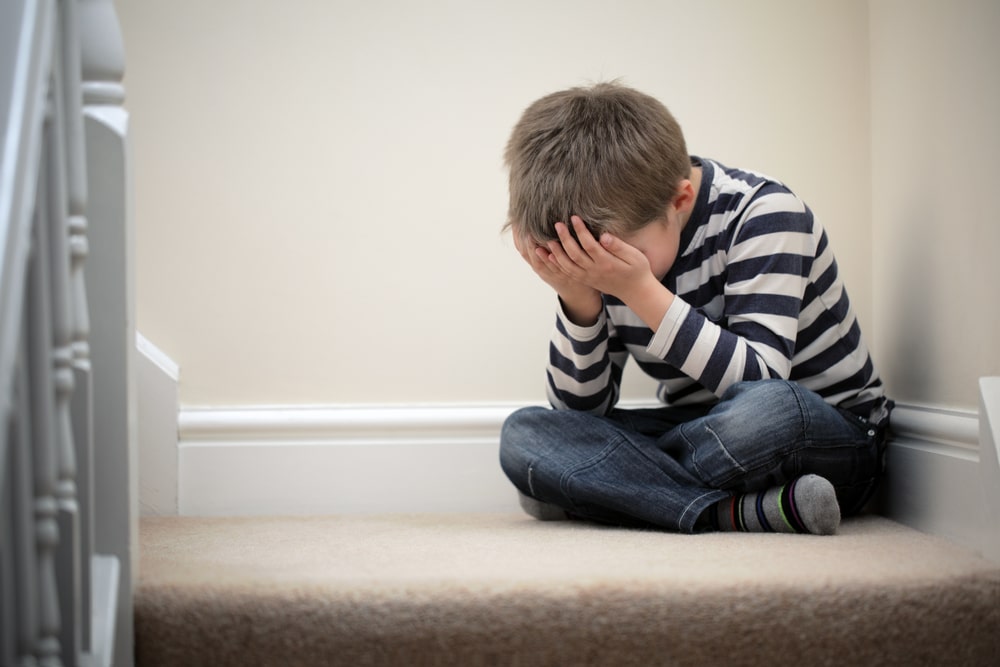We’ve all experienced disappointment recently. How do we deal with it? How do we help our children deal with it?
(Note: While many have unfortunately experienced deeply traumatic losses, such as the passing of a loved one or losing their source of parnassah, this article focuses on everyday sources of disappointment.)
We all have our own Corona story.
One story, with lots and lots of chapters.
If we’d convey the plot-line through expressions, it would probably be something like this, “Oh. Nah. Oh no! No way! Okay. Oh wow.”
First comes the oh. The simple realization that something big is happening, something contrary to what we’ve anticipated, like no Pesach with the family, no school until September, no sleepaway camp, no alone time, no breaks.
Then the nah follows, where we find it hard to accept that this is the current reality. We wish it would disappear with the indifferent wave of our hand, but alas, it does not. Proof? Eerily familiar cries of “I’m bored!!”
So then we fall into the Oh no! mode. Ugh! This can’t be happening. This is too difficult for me to bear. We may feel either helplessness, anger, blame, self-pity, frustration, or a combo of all.
After we hit the climax, we notice that we’re starting to breathe again. We move from No way! to Okay, I can do this. We can do this. This may actually have some good parts too. And then, hopefully, we look back and say, Oh wow. Look what we’ve come away with. Look what we’ve gained from this time together that we would have never planned but have learned to grow from.

During this period in our lives, we’ve all experienced our fair share of disappointment: the feeling of sadness or displeasure caused by the non-fulfillment of one’s hopes or expectations. It’s a very human reaction to a circumstance that is contrary to what we desire. We may feel this when a technical circumstance doesn’t go as we want it to, such as a canceled plan, or when we experience an emotional letdown, such as noticing that our spouse or child is not who we thought or wished they were. Now that we’ve spent so much time in our own company too, we may have realized that we’re lacking in certain areas that we hadn’t been nudged to notice until this point. All of this bothers us. It hurts. We wish things would be different and we find ourselves going through the stages of our “story.” But how can we reach the pleasant resolution that ties it all up with a pretty bow? How can we come away having gained something deep and meaningful?
Here’s the secret: The unpleasant emotions come first. And the only two options we have when those emotions arise are to either face them or bury them. Facing them requires some kind of expression, a recognition of “this is how I feel right now,” whether to ourselves or to another person. When we do that, we may find that our logic comes into play: You’re upset about this? Especially when the cause for the disappointment appears petty, we may find it hard to reconcile the degree of emotion that we’re experiencing with the actual circumstance. But since emotion and logic are not correlated, whatever I’m feeling is what I’m feeling and thus deserves its space. It doesn’t have to make sense. The more I accept that this is how I feel, as opposed to berating myself for it, the more I am able to move on.
Acceptance, and subsequent growth, is an organic process, one that can’t be forced or rushed. And the process includes giving ourselves permission to feel it where it hurts. Contrary to common misconception, this is the path toward fostering emunah: to first acknowledge our pain, sent to us by Hashem as a catalyst for our growth. Very much like the birth process, the pangs along the way open us up to our new existence. “Wow, I am so disappointed. This is so hard for me.”
Just as we need our time to digest and process, and the last thing we want to be told is to stop feeling what we’re feeling, so do our kids. Al tenachmeihu bishas kaso, Chazal urge. Don’t console him in his moment of ire. When a child is frustrated, they’re not yet ready to hear the emunah talk. They’re not ready to hear that this is for the best, that it could have been much worse, that “let’s be grateful for what we do have.” They don’t even want solutions.
When we attempt to rush up the process, inadvertently encouraging the child to bury his emotions, the child learns to associate emunah and resilience, both critical facets to wellbeing, with numbing emotions. They will subconsciously make the connection of “If I’m hurting, I don’t have emunah. If I’m hurting, I’m not resilient.” (As opposed to, “This really, really hurts but I trust that it’s for my good.”) And even without being consciously aware of it, they will view denying emotion, operating as a robot, as an ideal. Since we want to raise children who are alive and passionate and functioning at their highest capacity, that’s not a message we want to convey in our parenting.

At that moment of disappointment, all a child wants is their space—to feel what they’re feeling. They want authentic empathy. “Which part of this bothers you most?” It’s when we acknowledge their disappointment, “Wow, this is so upsetting,” that we make space for them to come to acceptance on their own. (At the same time, we can gently remind them that acting upon the emotion—such as by hurting others—is not allowed.) They may be young, very young, but they need just the same empathy we desire from our spouse or friend when we’re the ones whose dreams were dashed. After they’ve faced the emotion, they’re ready to hear, “It hurts me so much that you feel this way. What can I do to make this easier for you?”
As parents, if we find that we’re tempted to immediately offer unsolicited advice or mussar, or to downplay the emotion, we may want to look inside ourselves and see what it is about expressing disappointment that is hard for us to handle. Does expression of emotion make us feel uncomfortable? Do we see it as a reflection of parenting that leaves much to be desired? Do we have a hard time being in an imperfect circumstance? Noticing what makes it difficult for us to simply “be there” for our child helps us deal with those barriers that are inhibiting us from feeling genuine connection, as parents, as spouses, and as people.
When we’re experiencing a disappointing incident, it really hurts. In the moment, all we may wish for is for it to disappear. But if we take the time to process how we’re feeling, to give ourselves permission to feel the sadness, the displeasure, the “But this is not what I expected!!” we make space for growth to happen. It is then that we can start to notice the silver lining, to realize how Hakadosh Baruch Hu orchestrated these events for our good. Take your time, dear sister, and give your children the time they need, and watch the seedling come to life.
How has Hashem orchestrated your growth through disappointment? Share a chapter of your Corona story below so all of us at BCP can cheer you on and gain chizuk.





Hi to all my “fellow sisters”,
Thank you to Shiffy Friedman for raising this significantly relevant topic. It’s been awhile since Shiffy posted an article and I was so excited when it popped up on my screen. Each time anew, her articles enrich and inspire.
Some of us may feel uncomfortable sharing our little Corona stories when there are others who where affected more seriously. However, as the article delicately explained…every story is important. And while we learned to cherish every breath, living grandparents, our childrens’ school teachers, and water; we also came to appreciate our family’s resilience, creativity, temimus, never ending source of energy and childish humor. Through all this, we need(ed) each other to get through, and yes, even a corny joke can make us holler these days. Perhaps it’s because sometimes our inner fears and sadness are released through laughter, as opposed to the expected cry.
May we be zoche to rejoice with tears of happiness accompanied the blasts of Moshiach, very soon.
A. Kleinbart
Thank you for your beautiful, inspiring message, Adina.
And for your compliment too!
We’re one of the families who was chosen by Hashem to experience significant losses during this difficult period. No matter how much time passes, the pain is always there; it’s something that we live with each day. However, we still understand that everyone is traumatized by different aspects of this period, some more than others. What gets us through the days is focusing on the positive, and counting our blessings, of which there are so many, Baruch Hashem.
Thanks for sharing, LC. May you and your family be comforted.
Hi,
I Gave birth to my second baby on march 25 it was one of the 3 days that all the hospitals were on lock down. The day before, I heard about the hospitals not letting anyone in, I tried calling askanim to see if they can help me – there was nothing anyone could do, I would be going to give birth myself! The world was in chaos like there weren’t even the masks yet. That night I probably had some kind of panic attack (I didn’t even know such a feeling exists) early morning I went into the hospital they didn’t let my husband come, my doula was trying to talk to a nurse on the phone( the nurse was very rude) I asked her if she can please let someone in, she yelled at me ” this is a free country you can go home!”
My OB was in quarintine being sick – I had no choice but to hold on to the thought that hashem is with me.
When I was transferred to a room a fine bais yakov girl was going to be my nurse! She was ultra kind it was amazing ! Most doctors in that hospital are not the greatest(floor doctors) I saw a frum looking man in the hallway my nurse tells me “hashem loves you, this is an amazing Dr. And he hasn’t come into the hospital in while ! Bh. My husband was home saying tehillim with a worldwide Yom tefilla (due to covid) at 12:00 I called him with the mazel tov he tells me they just finished saying tehillim!
That night the liason from the hospital came in he took a picture from my first son and emailed it to my husband to see!
It was a very mixed experience ! I was anxious at times like never before but I felt the chessed of hashem and was peaceful like never before.
Bh I have a few kids after that and the emotional memories that stayed with me from that birth is peace! I connected to the goodness from hashem which is usually taken for granted!